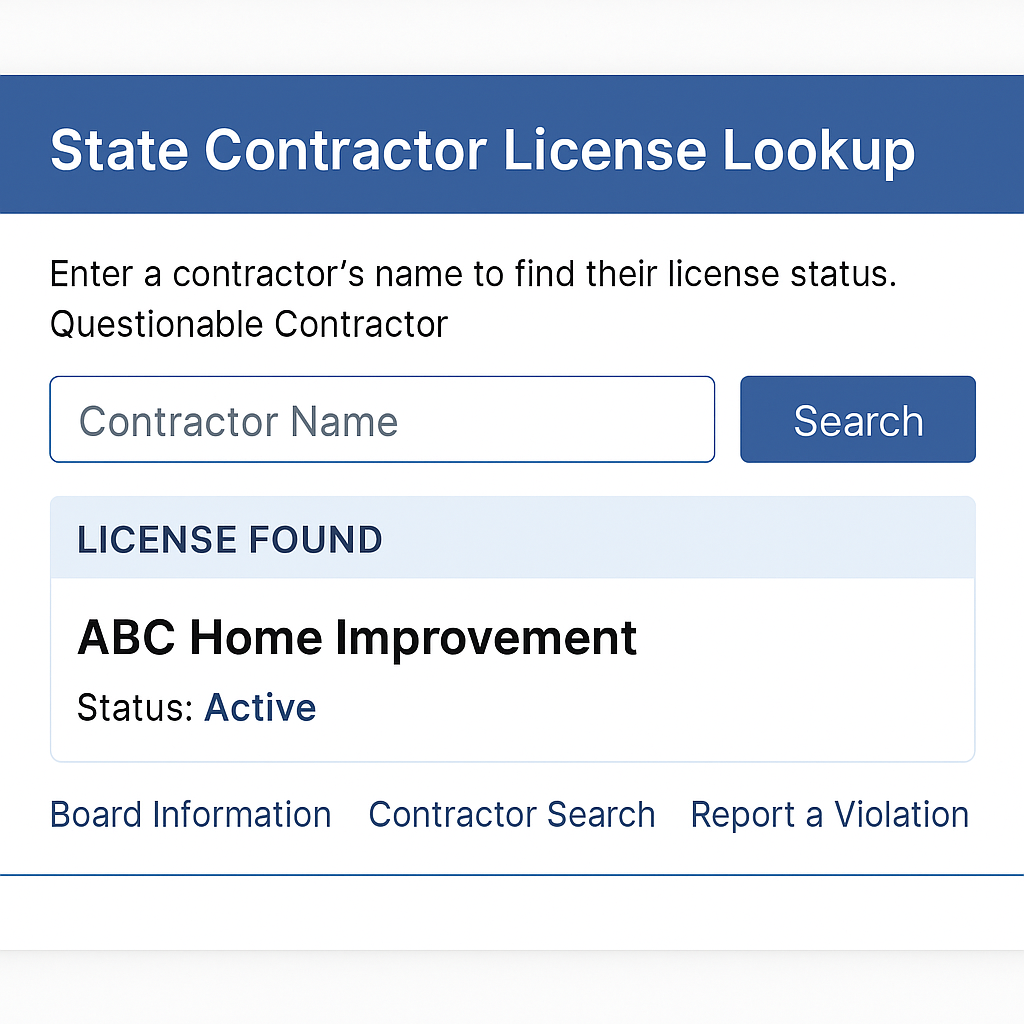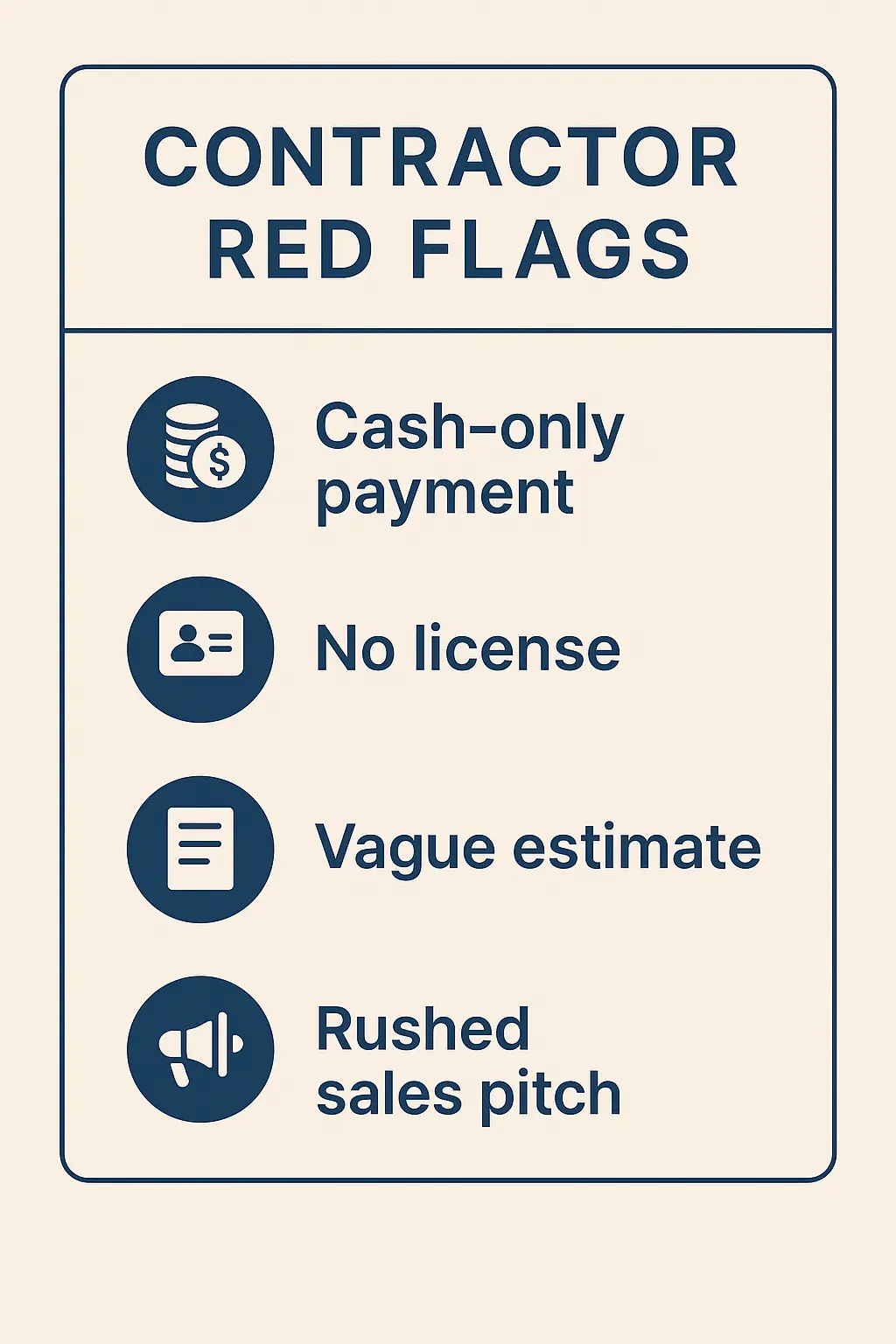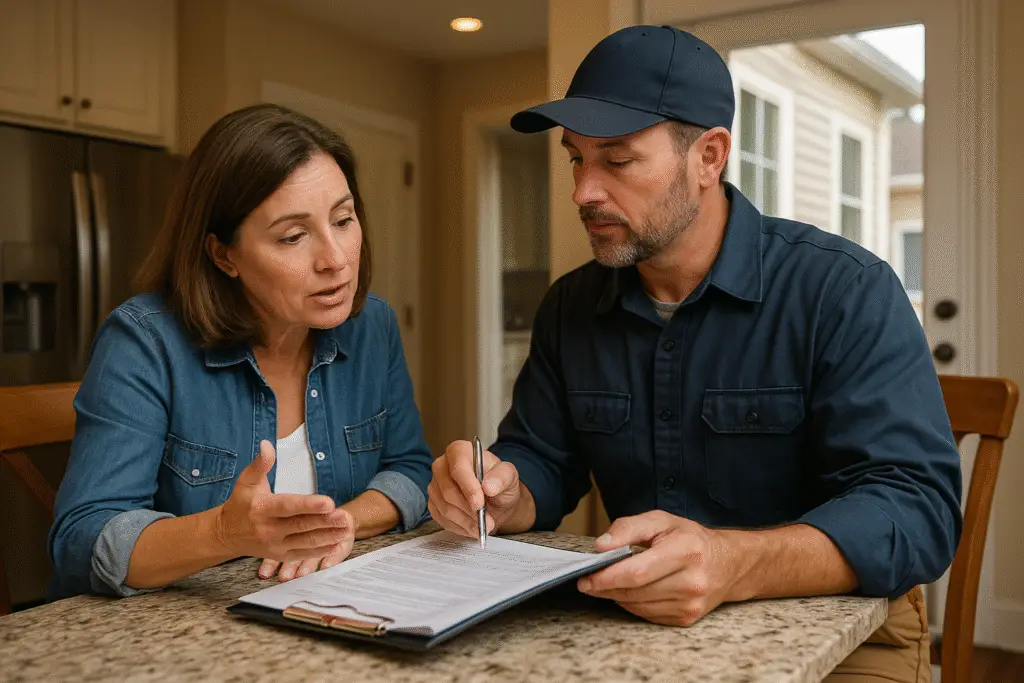When you’re staring down a home repair or renovation, finding the right contractor can feel as risky as the project itself. One wrong hire and you could be looking at blown budgets, missed deadlines, or even lawsuits. Here’s how to protect yourself legally when hiring help for your home — and where to turn if things go sideways.
How to Hire a Contractor Without Getting Scammed
Home projects can go off the rails fast. The difference between a trusted pro and a costly mistake often comes down to a few simple but critical legal checks: licensing, insurance, contracts, and payment terms. Skipping any of those opens the door to disputes — and leaves you on the hook.
Ready to Hire the Right Contractor?
Avoid scams, bad bids, and costly mistakes. Get the SmartHire Contractor Kit and hire with confidence from day one.
The Right Way to Hire a Contractor: A Legal Checklist

- ✅ Check for a valid contractor’s license — Confirm they’re registered with your state or local authority.
- ✅ Verify proof of insurance — Require both liability and workers’ compensation coverage.
- ✅ Get a detailed, written contract — Never agree to work based on a verbal promise.
- ✅ Review payment terms — Set clear stages, avoid full payment upfront, and use lien waivers.
- ✅ Ask for and call references — Make sure past customers had a good experience.
- ✅ Watch for red flags — High-pressure sales, vague estimates, or cash-only demands are warning signs.
Why You Should Hire a Licensed and Insured Contractor
If a contractor isn’t licensed, don’t hire them. Period. Licensing shows they meet your state’s minimum standards — and that you have some recourse if something goes wrong. You can verify their credentials through your state licensing board (we’ll link to a directory by state).
That said, not all work requires a license in every state. Basic handyman services, minor repairs, or certain types of general carpentry might legally fall outside licensing requirements — but that doesn’t mean you should skip the vetting process. In those cases, ask for references, proof of insurance, and a clear written agreement just as you would with any larger contractor.
Insurance is equally non-negotiable. Ask for proof of both liability insurance and workers’ comp. If they don’t have it, you could be financially responsible for injuries or damage on your property.
What a Legal Contractor Agreement Should Include
Before you sign anything, make sure your bases are covered.
A proper contract should spell out:
- Scope of work: What exactly is being done — room by room or system by system. No vagueness, no “as needed” unless clearly defined.
- Payment schedule: When payments are due, and what must be completed at each stage before payment is made.
- Start and end dates: The agreed timeline for when work begins and when it’s expected to be completed.
- Materials and brands: Specific products being used — type, quality, and brand. This avoids last-minute substitutions.
- Warranties: What’s covered and for how long — both on labor and materials. Get it in writing.
- Change order terms: How additions or changes to the project will be handled — including pricing, scope, and who approves them.
Make sure it includes the contractor’s license number and insurance info (if applicable). And never sign a contract with blanks to be filled in later.
Contractor Insurance and Lien Waivers: Protect Your Home
Never pay the full amount upfront. A typical schedule might be 10% down, 50% after key milestones, and the remainder upon completion.
Also, understand your state’s lien laws. If your contractor fails to pay subcontractors or suppliers, they can file a lien against your home — even if you’ve paid in full. Protect yourself with a lien waiver at each payment stage.
Watch Out: Many homeowners don’t realize that a subcontractor’s lien can still stick even if you paid the contractor in full. Don’t skip lien waivers!
Red Flags That Should Stop You Cold

- No license or vague about providing one (for work that requires it)
- Asks for cash only or full payment upfront
- Won’t give references or address concerns in writing
- Pressures you to make quick decisions
If something feels off, trust your gut and walk away. There are plenty of reputable contractors out there.
What If Something Goes Wrong?
If work is shoddy, delayed, or incomplete, start by documenting everything. Communicate your concerns in writing. If that doesn’t resolve it, check your state’s licensing board or consumer protection office. AHA members can also access our legal letter templates and contractor complaint support.
Wrap-Up: Hire Smart, Protect Yourself

Hiring a contractor doesn’t have to be risky. By checking licenses, insisting on clear contracts, and understanding payment protections, you can dramatically lower your legal exposure.
Want to be extra prepared? AHA Members get exclusive access to The AHA SmartHire Contractor Kit — our all-in-one resource for hiring smart and staying protected. It includes everything from agreement templates and lien waiver forms to step-by-step vetting guides and access to the AHA Contractor Finder.
➡️ Get the AHA SmartHire Contractor Kit and get access to templates, checklists, and legal guidance for your next project.

